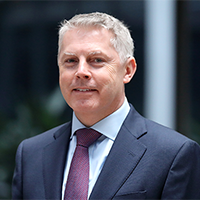
By Anthony Eddington - Head, Financial Crime Compliance, MFSA
There are significant social and economic costs arising from money laundering and the funding of terrorism. In fact, the laundering of the proceeds of crime is a key enabler of most serious and organised criminal activity.
A robust AML/CFT regime is vital to ensure the integrity of the financial system and attract the right kind of business to Malta. This helps grow the economy and protect both people and commerce. In the end, a sound AML/CFT regime provides a level playing field for businesses and enables government to provide critical services, including health and education. Money laundering and terrorist financing perpetrated or facilitated through Malta can also undermine the security of other countries.
The MFSA recently published an update to its AML/CFT Strategy. Through this strategy, the MFSA ensures that bad actors do not penetrate the authorised regulated community. The importance that it places on effective measures to reduce the risk of AML/CTF in the jurisdiction is reflected at every stage of the supervisory life-cycle. We do this by having a range of techniques in place, to ensure that only the right people and firms become licence holders – this is essentially part of our due diligence process. In the MFSA’s Risk Appetite Statement published in January 2020, the Authority defined its risk appetite for authorisations as being largely low, with some exceptions in terms of medium risk.

Once authorised, a person or firm must maintain continued discipline and approach to AML/CFT, which is achieved through effective and thorough supervision. Finally, this is supported by effective Enforcement and by collaboratively engaging with licensed entities, such that only the highest AML/CFT standards prevail.
The status update acts as a follow-up to the 2019 AML/CFT Strategy and provides an overview of the action points and projects that have been completed, as well as those still in progress. Since 2019, the MFSA has registered significant improvement in the area of AML/CFT. The MFSA has considerably enhanced the AML/CFT control framework through more robust intrusive inspections, evidencing effective proportionate and risk-based supervision. The Authority has a dedicated Financial Crime Compliance team with a headcount of 20 individuals (expanding to 23 in 2021), all of which possess subject matter expertise in their specialist field. Within the industry, we have also seen a positive shift in this respect, with real investment in back-office systems, controls and people.
The MFSA remains highly committed to developing and embedding best practices in deterring financial crime throughout the industry that it regulates and internally in its organisation. We need to keep up-to-date with current and new threats and vulnerabilities, hence significant investment is needed in financial crime compliance. The Authority continues to identify areas where it can strengthen its practices through engagement with other supervisory authorities, through participation in the international community and through an ongoing process of organisational challenge and development.

